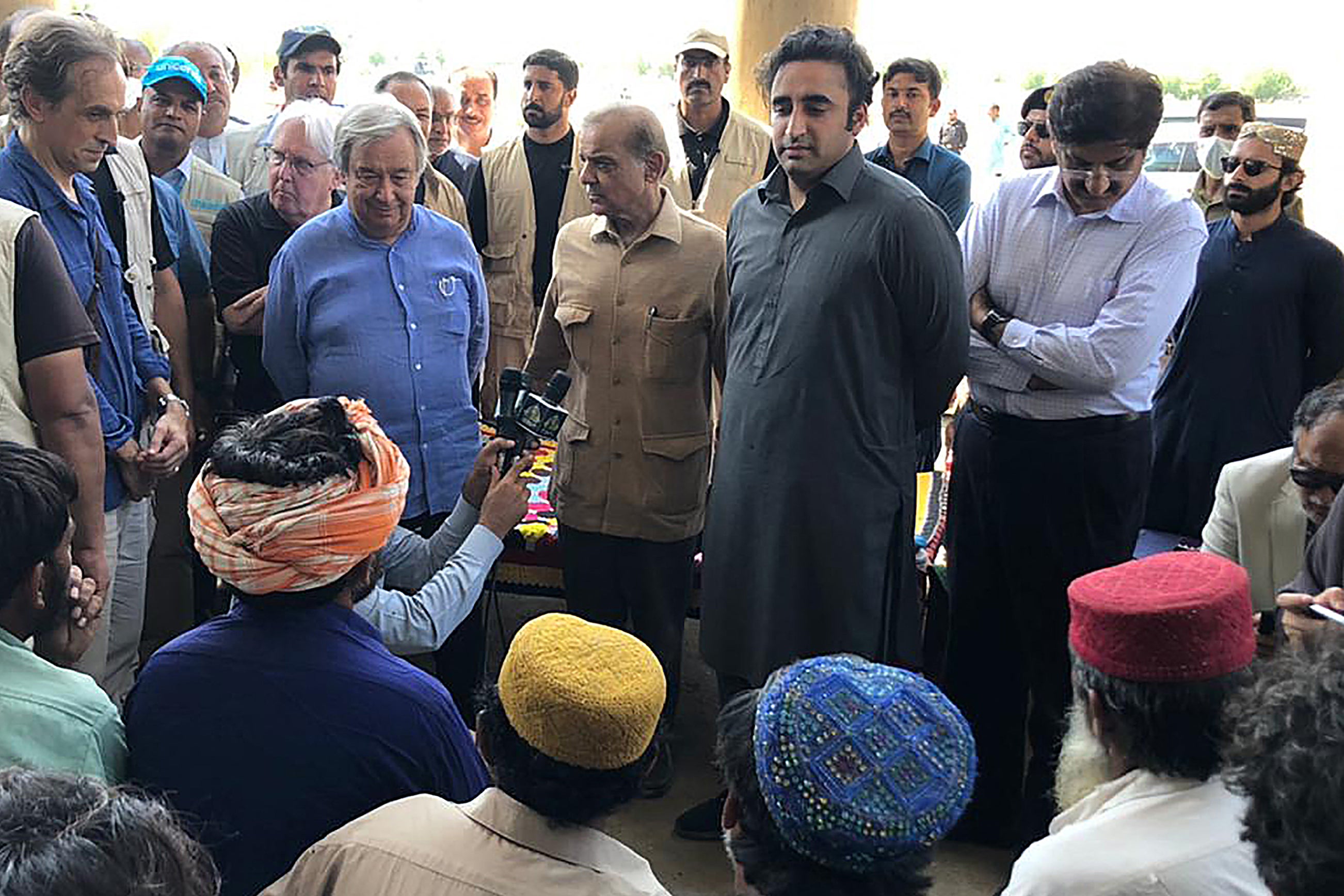
Every country worldwide needs an early warning system for climate-related disasters within five years.
That statement by the United Nations on Tuesday coincided with a U.N. report showing that planet-warming emissions continue to rise, temperature records are being smashed, and pledges by world leaders to lower carbon output are failing to keep the world from approaching dangerous tipping points.
U.N. Secretary-General António Guterres called the report a “shameful reminder” that the world is neglecting the investment needed to respond to historic disasters like heat waves, droughts and floods.
“It is a scandal that developed countries have failed to take adaptation seriously, and shrugged off their commitments to help the developing world,” he said.
The report, overseen by the World Meteorological Organization, finds that climate-related disasters kill 115 people and cost $200 million a day on average — five times greater than 50 years ago. The consequences are felt most severely in places that are often the least equipped to respond and recover.
And many of those countries also don’t have systems that could alert them to the danger.
Guterres pointed to that discrepancy in a speech earlier this year, when he first called for universal access to early warning systems by 2027. He reiterated that call Tuesday.
“Early warning systems save lives, reduce losses and damages, contribute to disaster risk reduction and support climate change adaptation,” the U.N. report states.
Early warning gap
Only half of all countries have early warning systems, according to a U.N. survey. Those that don’t are mostly poor nations or small island developing states, many of which are highly vulnerable to the impacts of climate change.
“This gap means that once a disaster hits a country, there are more casualties and more economic losses,” said Petteri Taalas, secretary-general of the World Meteorological Organization.
The agency, which is part of the United Nations, is spearheading an early warning system initiative and will present a plan to move it forward at the global climate talks in Egypt this November. It’s asking donors and development agencies to contribute funding.
The push comes as a summer of extreme weather puts a focus on how countries are unprepared to deal with the fallout.
During a visit last week to Pakistan, where record flooding has killed more than 1,300 people and inflicted damage the government estimated at $30 billion, Guterres appealed to rich nations to fulfill their overdue climate finance pledges and provide a plan to double their support for adaptation, as agreed to at last year’s climate summit in Glasgow, Scotland.
Climate finance is shaping up to be a focal point at this year’s negotiations in Egypt, with climate-vulnerable countries seeking payments for the damages they’re enduring, stemming largely from the emissions of faraway rich nations.
That could be a hard sell. Wealthy countries are increasingly experiencing climate-related damages of their own.
Guterres and other climate leaders have called for an equal amount of climate finance to go toward adaptation and mitigation. Most of the global money invested in climate programs currently goes toward emission reduction efforts.
The World Meteorological Organization estimates that it would cost $1.5 billion to fill immediate gaps in observation systems and set up rudimentary early warning programs in countries that don’t have them.
Yet studies show the return on that initial investment pays off. According to the Global Commission on Adaptation, every $1 invested in early warning systems could result in $9 in net economic benefits.
A first step
Early warning systems work by alerting people to extreme weather events so they have time to respond.
The classic example is a flood or storm warning system that urges people to take shelter or evacuate. But they can also warn people of other types of disasters, such as extreme heat, wildfires, pests and diseases.
In some cases, warnings may involve a siren. But as access to cellphones expands, text messages are becoming widespread, said Rebecca Carter, director of climate resilience at the World Resources Institute. In other places, radios are the quickest way to reach people.
But for any warning system to be effective, they need to do more than just sound an alarm, said Carter.
Better information is needed to help people know where to go or how to respond when warnings go out. People also need to have the means to comply with the warning. That could mean having access to transportation funding to evacuate people, for example.
Bangladesh has managed to reduce cyclone-related deaths through a system of adaptation that started with early warning systems and expanded to include cyclone shelters, community awareness, reinforced buildings and recovery services.
Achieving global early warning coverage will require collaboration across different sectors and creative uses of finance, the U.N. report says.
That might seem like an daunting challenge. But it’s just one step. Bigger goals include full-fledged adaptation systems that prevent damage in the first place, Carter said.
“It’s great if you have a warning that says you need to evacuate your home because a flood is coming,” she said. “It’s even better if you know a flood is coming and you don’t have to evacuate because your country or city or community has been able to invest in infrastructure that avoids the need for you to go somewhere else.”
Reprinted from E&E News with permission from POLITICO, LLC. Copyright 2022. E&E News provides essential news for energy and environment professionals.
